Author: Jay Jo & Yoon Lee, Tiger Research
Compiled by: Felix, PANews
Key Points
- Thanks to government leadership and friendly Web3 policies, Japan is one of the most advanced countries in terms of stablecoin regulatory frameworks among mainstream nations.
- However, the use cases for stablecoins in Japan are limited. There is no EPISP registration for stablecoin businesses, and no stablecoins are listed on local exchanges, restricting their application in the retail sector.
- Nevertheless, the existence of a regulatory framework is still significant, providing clarity for businesses. It is anticipated that major banks in Japan and large companies like Sony will participate in the stablecoin market.
1. Introduction
The Japanese stablecoin market has stabilized, largely due to the establishment of a clear regulatory framework. Government initiatives and policies from the ruling Liberal Democratic Party aimed at accelerating the development of the Web3 industry have also supported this. Japan's proactive and open attitude sharply contrasts with the ambiguous or restrictive stances taken by many other countries regarding stablecoins. As a result, there is optimism about the future direction of Japan's Web3 market. This report examines Japan's stablecoin regulations and explores the potential impact of yen-backed stablecoins.
2. The Japanese Stablecoin Market Soars with Regulatory Progress
In June 2022, Japan revised the Payment Services Act (PSA), laying the groundwork for a regulatory framework for the issuance and brokerage of stablecoins. These amendments took effect in June 2023, marking the official start of stablecoin issuance. The revised law provides a detailed definition of stablecoins, designates issuing entities, and outlines the licenses required to conduct stablecoin business.
2.1. Definition of Stablecoins
According to Japan's revised PSA, stablecoins are classified as "Electronic Payment Instruments (EPI)," meaning stablecoins can be used to pay for goods or services to an unspecified number of recipients.

Source: Tiger Research
However, not all stablecoins fall into this category. According to Article 2, Paragraph 5, Item 1 of the revised Public Services Act, only stablecoins that maintain their value based on legal currency are recognized as electronic payment instruments. This means that stablecoins backed by cryptocurrencies like Bitcoin or Ethereum (such as MakerDAO's DAI) are not classified as electronic payment instruments. This is a key feature of Japan's regulatory framework.
2.2. Entities Authorized to Issue Stablecoins
Japan's revised PSA clearly defines the entities authorized to issue stablecoins, which are limited to three categories:
- Banks
- Fund transfer service providers
- Trust companies
Each entity can issue stablecoins with different characteristics, but they vary in terms of maximum transfer amounts and recipient restrictions.

Source: Mitsubishi UFJ Financial Group (MUFG)
Among these issuers, trust companies that issue trust-type stablecoins are particularly noteworthy. This is because they may be most compatible with Japan's current regulatory environment and have characteristics similar to common stablecoins like USDT and USDC.
According to Japanese regulators, stablecoins issued by banks will face certain restrictions. Banks must maintain financial system stability under strict regulation, but unlicensed stablecoins are difficult to manage. Therefore, regulators emphasize that stablecoins issued by banks need to be considered carefully and may require further legislation.
Fund transfer service providers also face restrictions. The maximum transfer amount per transaction is 1 million yen, and it is currently unclear whether transfers can be made to recipients without KYC verification. Therefore, stablecoins issued by fund transfer service providers may require additional regulation in advance. Given these conditions, stablecoins issued by trust companies are likely to be the most widely adopted.
2.3. Licenses Related to Stablecoins
To conduct stablecoin-related business in Japan, entities must obtain a stablecoin-related license by registering as Electronic Payment Instrument Service Providers (EPISP). Stablecoin-related business refers to activities such as buying, selling, exchanging, brokering, or acting as an agent. For example, virtual asset exchanges that list and support stablecoin trading or custodial wallet services that manage stablecoins on behalf of others also need to register. In addition to registration, these businesses must also meet user protection and anti-money laundering (AML) compliance obligations.
3. Yen Stablecoins
Due to Japan's well-established regulatory framework for stablecoins, various projects are actively researching and experimenting with yen-based stablecoins.
3.1. JPYC: Prepaid Instrument
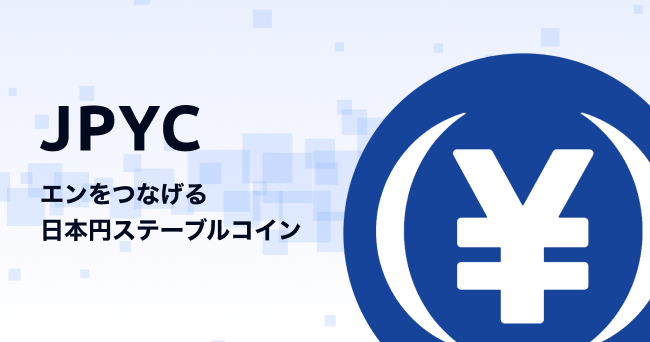
Source: JPYC
JPYC is Japan's first digital asset issuer pegged to the yen, established in January 2021. However, the "JPYC" token is currently classified as a prepaid instrument rather than an electronic payment instrument, meaning it is not legally recognized as a stablecoin. Therefore, JPYC functions more like a prepaid coupon, with limited uses and applications. Specifically, while legal currency can be exchanged for JPYC, it is not allowed to be exchanged back to legal currency, which limits its utility.
Notably, JPYC is working towards issuing a stablecoin that complies with the revised PSA. Initially, JPYC plans to issue a fund transfer stablecoin by obtaining a fund transfer license. The goal is to expand its use by facilitating exchanges with the deposit-backed digital currency Tochika issued by Hokugin Bank.
JPYC is also preparing to register as an EPISP to operate stablecoin business. In the long term, the company's goal is to issue and operate trust-type stablecoins based on Progmat's Progmat Coin, enabling it to support various business activities involving cash or bank deposits. Additionally, JPYC's integration with Circle's infrastructure is expected to provide significant advantages for expanding its business, particularly in cross-border payments.
3.2. Tochika: Deposit-Backed Digital Currency
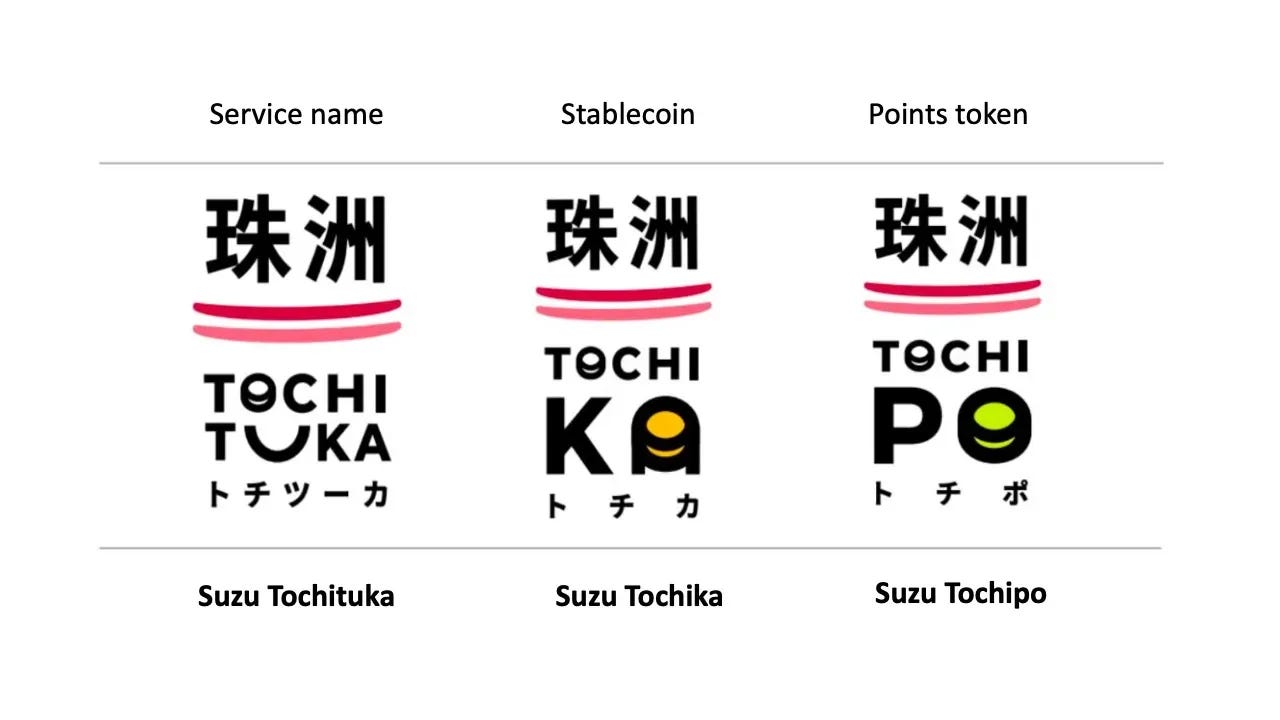
Source: Hokugin Bank
Tochika is Japan's first deposit-backed digital currency. It was launched in 2024 by Hokugin Bank, a local bank in Ishikawa Prefecture. Tochika is supported by bank deposits and provides digital tokens that bank account holders can use as a deposit service.
Users can access Tochika through the Tochituka app, developed jointly by Hokugin Bank and Suzu City. Users can register bank accounts on the app, recharge Tochituka, and use it as a payment method at participating merchants in Ishikawa Prefecture.
Tochika stands out for its simplicity and the 0.5% commission it offers to merchants. However, there are some limitations. Currently, Tochika is only available within Ishikawa Prefecture, and users can only cash out recharged Tochika for free once a month; thereafter, a fee of 110 Tochika (equivalent to 110 yen) is charged. Additionally, Tochika operates on a licensed private blockchain developed by Digital Platformer, limiting its use to a closed ecosystem.
In the future, Tochika plans to enhance and expand its services. These plans include linking deposit accounts with other financial institutions, expanding its coverage, and introducing person-to-person remittance features. Despite current limitations, Tochika sets a good precedent for deposit-backed digital currencies.
3.3. GYEN: Offshore Stablecoin
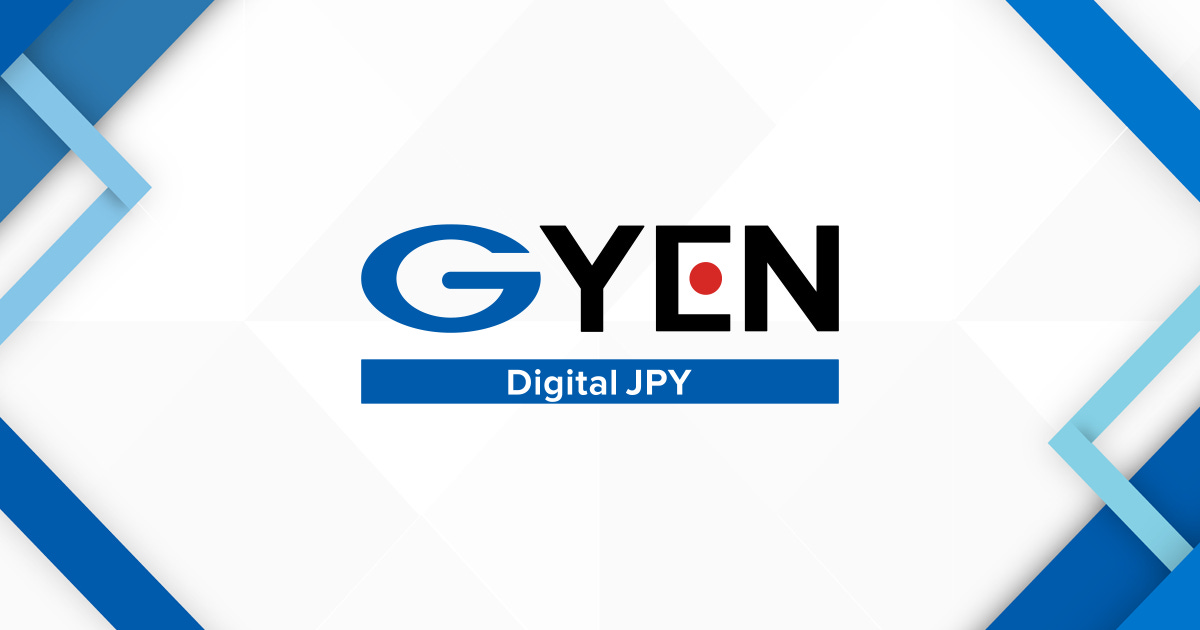
Source: GMO Trust
GYEN is a yen-pegged stablecoin issued by GMO Trust, a subsidiary of Japan's GMO Internet Group based in New York. This stablecoin is regulated by the New York State Department of Financial Services and is listed on a whitelist that authorizes certain cryptocurrencies to be issued in New York. GYEN is the only yen stablecoin that is traded physically on cryptocurrency exchanges and is currently available for trading on Coinbase.
GYEN is issued at a 1:1 ratio with the yen and is classified as a trust-type stablecoin. However, because GYEN is not issued by a trust company within Japan's regulatory framework, it cannot be issued in Japan or to Japanese residents, limiting its use in Japan. Nevertheless, Japanese regulators are discussing the specific requirements and compliance measures for GYEN, as well as for stablecoins like USDC and USDT.
4. Is Stablecoin Business Really Viable?
Despite the legalization of stablecoins for over a year, the various stablecoin projects emerging in Japan have made limited progress. In the Japanese market, unlicensed stablecoins like USDT or USDC are still rare. No company has yet completed the EPISP registration required to operate stablecoin-related businesses.
Furthermore, the requirement for stablecoin issuers to manage all reserves as demand deposits poses significant operational constraints. Demand deposits are typically unprofitable because they can be withdrawn at any time, yielding almost no returns. Although the Bank of Japan recently raised interest rates from 0%, short-term rates remain low at 0.25%, still below many other countries. This low interest rate may reduce the profitability of stablecoin businesses. As a result, there is a growing demand for more competitive stablecoins backed by different assets, such as Japanese government bonds.
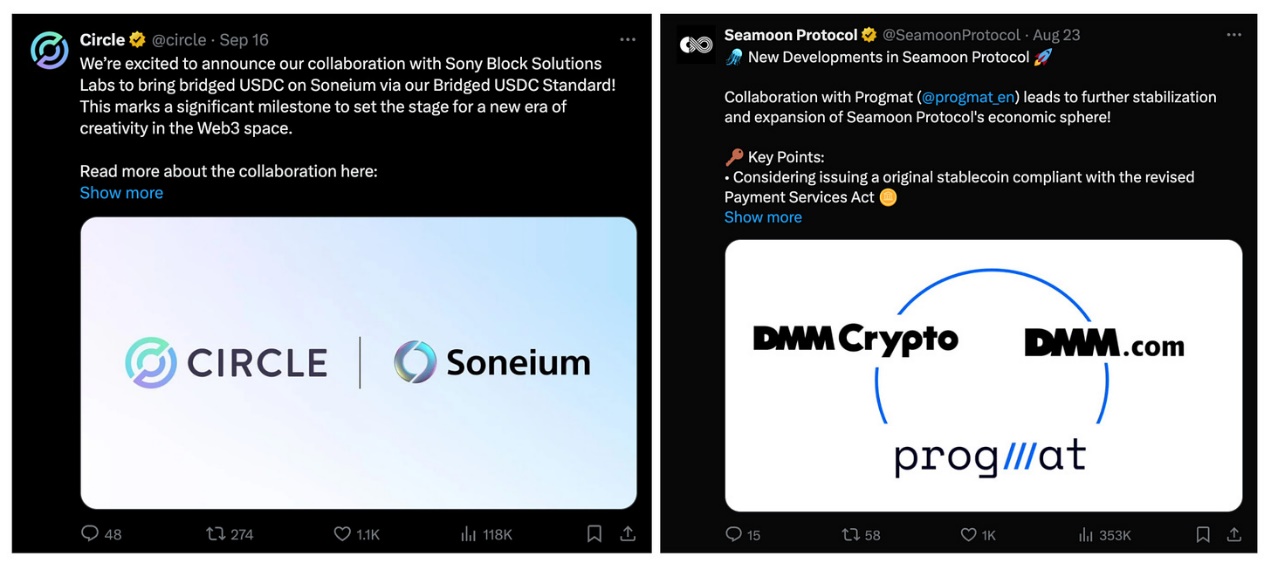
Source: (Left) Circle and Soneium, (Right) DMM Crypto and Progmat
Nevertheless, expectations remain high in the industry as major financial institutions and companies in Japan are actively participating in the stablecoin market. This includes large banks such as Mitsubishi UFJ Bank (MUFG), Mizuho Bank, and Sumitomo Mitsui Banking Corporation (SMBC), as well as corporate groups like Sony and DMM Group.
In light of these expectations, there are increasing calls for regulators to reassess their policies. Given that the legal framework has been in place for some time but lacks tangible results, doubts and concerns about its effectiveness may grow.
5. Conclusion
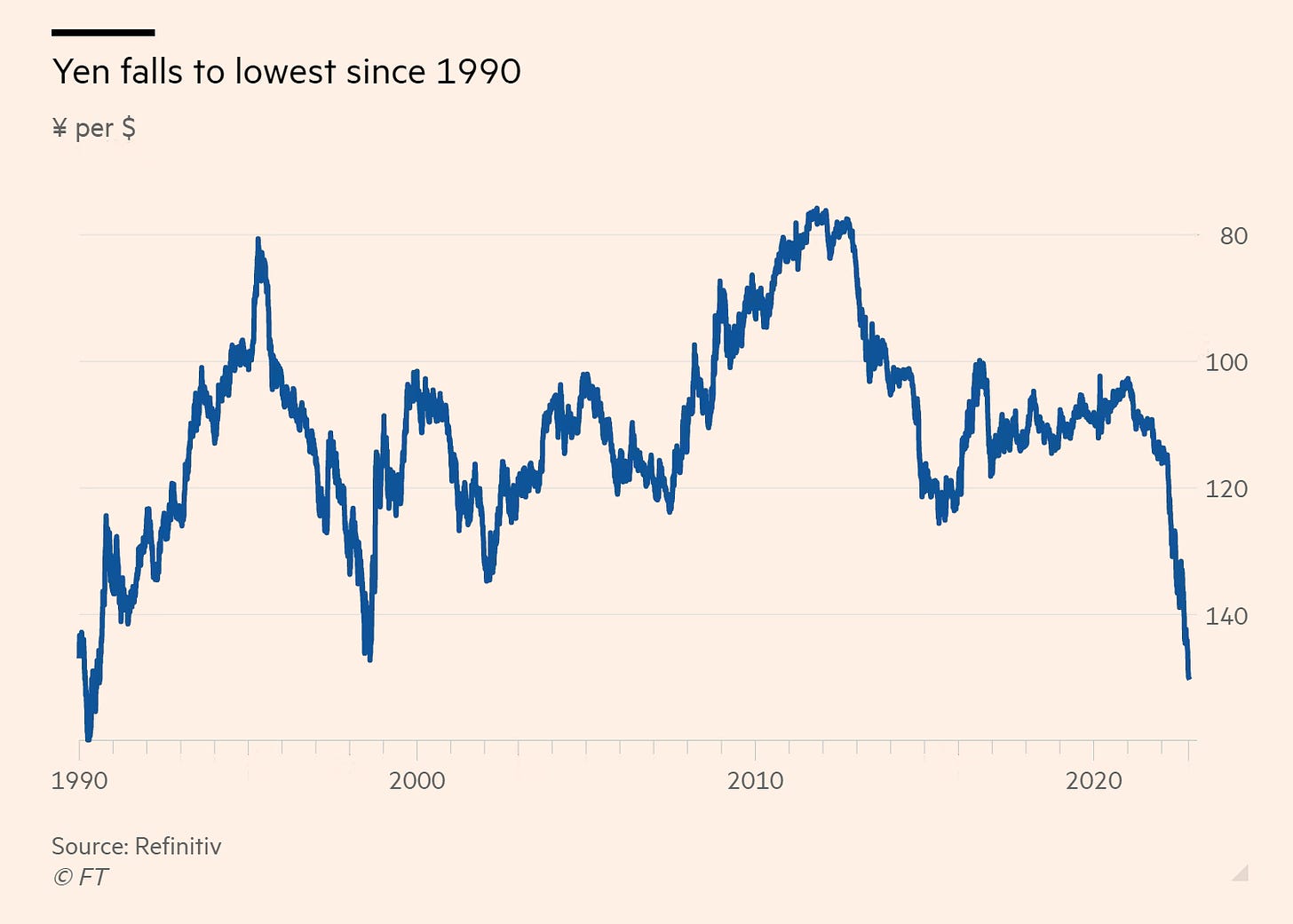
Source: Financial Times, Refinitiv
In recent years, Japan has been working to address the issue of yen depreciation and has implemented various strategies to enhance the competitiveness of its currency. Stablecoins are part of this effort, aimed at making the yen both scalable and competitive. The adoption of advanced stablecoins is expected to pave the way for a range of global use cases beyond Japan, including cross-border payments. This could enable Japan to expand its influence in the global financial market.
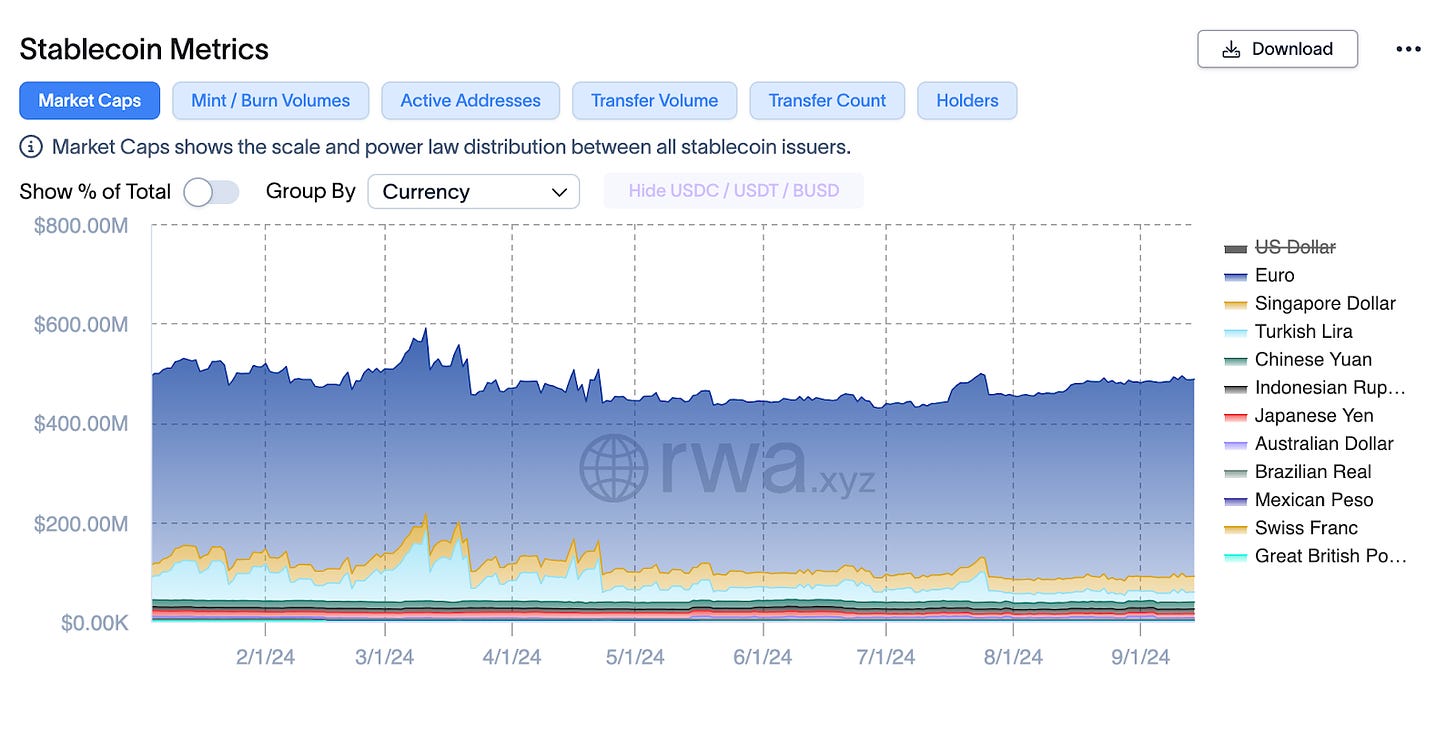
Source: rwa.xyz
Despite the stablecoin regulatory framework being in place for over a year, the presence of the yen in the stablecoin market is minimal. Use cases for stablecoins remain scarce, and there is no EPISP registration for businesses related to stablecoins. The declining approval ratings of the Kishida Cabinet and the Liberal Democratic Party also make it challenging to advance robust Web3-related policies. Nevertheless, the establishment of a regulatory framework is a meaningful step forward. While progress may be slow, the changes are worth looking forward to.
Related Articles: The Stablecoin Race is Heating Up: Total Market Value Surpasses $170 Billion, with Many New Players Entering the Field
免责声明:本文章仅代表作者个人观点,不代表本平台的立场和观点。本文章仅供信息分享,不构成对任何人的任何投资建议。用户与作者之间的任何争议,与本平台无关。如网页中刊载的文章或图片涉及侵权,请提供相关的权利证明和身份证明发送邮件到support@aicoin.com,本平台相关工作人员将会进行核查。




